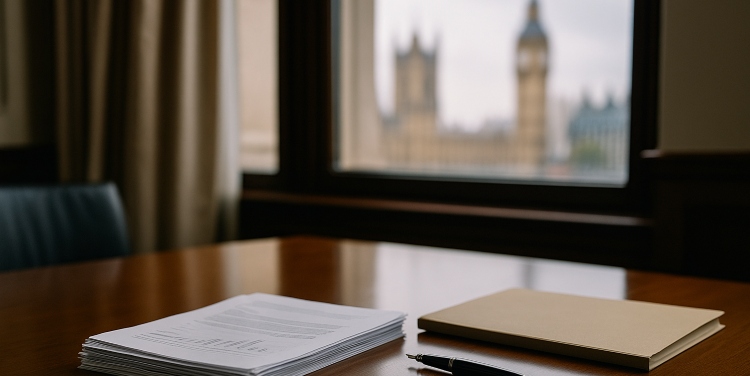More than 100 Labour MPs have signed a letter urging the government to raise the gambling levy, presenting it as a way to strengthen welfare provision and widen fiscal capacity. The intervention comes as ministers prepare for major budget decisions in Westminster, and it highlights how gambling revenues are becoming central to debates over how to fund social reform.
The discussion has drawn attention to the scope of gambling in the UK, which already provides steady tax receipts across multiple channels. Revenues come from high-street betting shops as well as online platforms – the latter becoming more popular lately thanks to generous bonuses, quick GBP payouts, and libraries offering the latest slot releases and live dealer tables (source: https://www.esports.net/uk/casino/). For MPs backing the levy rise, such examples show how the industry has become an integral part of the revenue base.
Support for the proposal stretches across Labour’s parliamentary ranks. Signatories include figures such as Rebecca Long-Bailey and former Shadow Chancellor John McDonnell, who argued in their letter that alternative sources of income are already present within the system and that a stronger levy on operators would be a straightforward way to expand public funds.
From their perspective, the case is built on continuity. The gambling sector already delivers regular contributions to the Treasury, and MPs frame the industry not as a target of criticism but as a dependable taxpayer whose role could be adjusted without destabilising operations. That framing has allowed them to position the levy increase as a technical adjustment rather than a punitive measure.
Government records reinforce this point. UK betting and gaming statistics show that the sector pays through several established duties, including General Betting Duty, Machine Games Duty and Remote Gaming Duty, all calculated on profits after winnings. These receipts form a predictable line in the national accounts. From April 2025, a statutory levy is scheduled to take effect, expected to raise about £100m annually, underlining how gambling is already treated as a reliable source of income.
Further debate has also focused on how gambling taxation is being restructured. Industry analysts have referred to the government’s consultation on a new single Remote Betting and Gaming Duty as taking a gamble on tax, a process launched earlier this year to consider merging duties such as General Betting Duty and Remote Gaming Duty, which are currently charged at rates up to 21 per cent. Although the final rate will only be confirmed through the Budget, the consultation has already shaped political discussion by showing how reforms could alter the flow of gambling revenues into the Treasury.
Alongside this, independent modelling from the Institute for Public Policy Research has gone further, suggesting that lifting Remote Gambling Duty from 21 per cent to 50 per cent could generate around £1.1bn a year. That projection has entered the wider debate as an example of how significant sums might be raised if policymakers opted for a more ambitious approach
For the Treasury, the pressure presents both risk and opportunity. Ministers must decide whether to draw more heavily on gambling revenues, weighing the certainty of a long-standing tax base against concerns about imposing higher costs on operators. For the industry, the debate underscores its place in the economy, where contributions are already significant and could rise further if political momentum gathers pace.
How the government responds will determine whether gambling taxation becomes a foundation for wider welfare reform. For MPs supporting the plan, the levy is presented as a pragmatic solution to expand fiscal room without resorting to broad tax rises, ensuring that gambling now sits at the centre of one of Westminster’s most active policy discussions.
David Prior
David Prior is the editor of Today News, responsible for the overall editorial strategy. He is an NCTJ-qualified journalist with over 20 years’ experience, and is also editor of the award-winning hyperlocal news title Altrincham Today. His LinkedIn profile is here.













































































